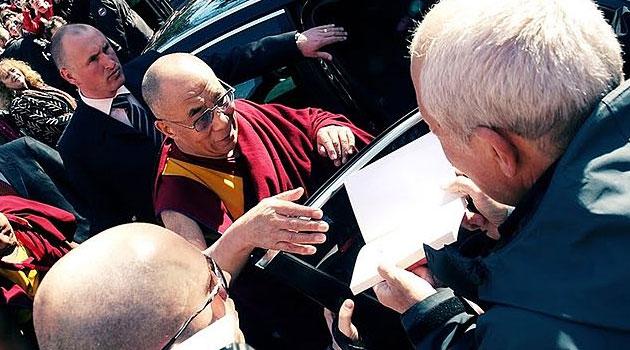Zeman says he would not meet with the Dalai Lama if elected Czech President

Speaking during a debate organized by the European Values (Evropské hodnoty) think-tank devoted primarily to foreign policy, presidential candidate Miloš Zeman (Strana práv občanů ZEMANOVCI – the Citizen’s Rights Party for Zeman) said that if elected president of the Czech Republic he would refuse to meet with the Tibetan spiritual leader the Dalai Lama – unless the Dalai Lama was visiting in the capacity of a big investor. Karel Schwarzenberg (TOP 09), who will be Zeman’s opponent during the second round of presidential elections, did not participate in the discussion, reportedly for lack of time.
"There is no doubt that the Dalai Lama is a religious leader. If I were a religious leader, I would be pleased to meet with him. However, as far as I can tell, none of my co-workers and not even any of my opponents have ever considered me a religious leader. It would be a different opportunity if the Dalai Lama were a big investor," Zeman declared, adding that he believes the Tibetan spiritual leader has the "sacred right" to travel to the Czech Republic and meet with local religious representatives "and that’s all".
Former Czech President Václav Havel repeatedly met with the Dalai Lama and even established a personal friendship with the Tibetan spiritual leader. His successor, Václav Klaus, never did.
Last September a harsh exchange of opinions about relations with the Dalai Lama occurred on the political scene when Czech PM Petr Nečas (Civic Democrats – ODS) warned against "fashionable political displays" such as support for the Tibetan spiritual leader or the female Russian activists of Pussy Riot, saying such alignments could put Czech exports at risk.
Czech Foreign Minister Schwarzenberg, who is currently running for president, responded sharply to Nečas at the time, saying the PM’s words were appalling. Schwarzenberg was bothered by the fact that the Prime Minister could "bow down to countries which we know suppress human rights", adding that Nečas had taken on board Chinese propaganda in his remarks about Tibet.